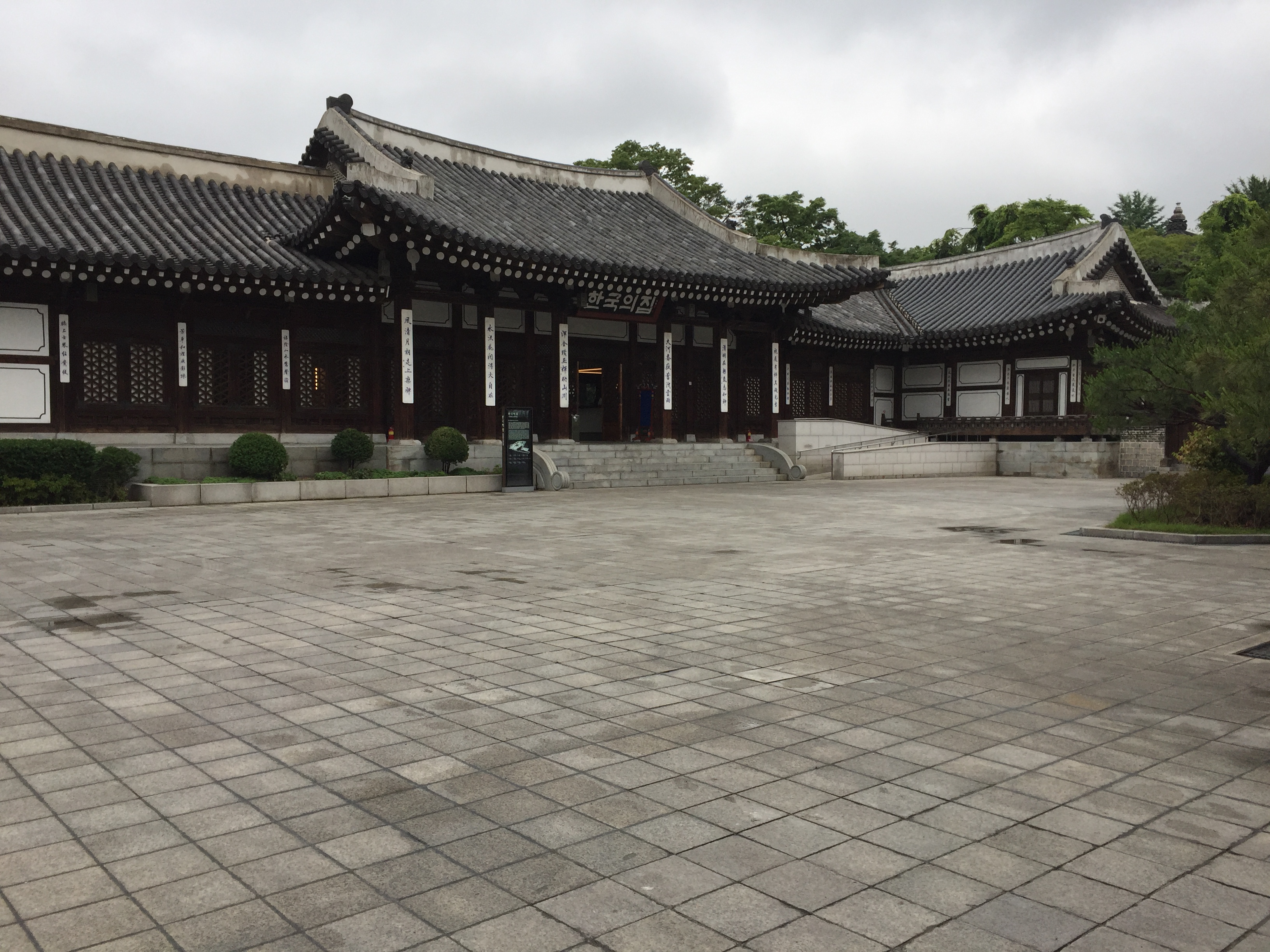Meeting another culture: Korea
by Isabel Deville (2000) Gisela-Gymnasium, München/Germany on 2017-10-29

South Korea is far away from my home country Germany. Last summer, I took a flight to Seoul, the capital of South Korea, it lasted eleven hours, but the trip was totally worth it! Seoul is a beautiful city and everything is so different from Germany.
Let’s start with my favorite topic, the music. Lots of Koreans are listening to Korean Pop, short K-Pop. It is a very popular music genre in East Asia, but you can find fans all over the world. I am one of them, too. The special thing about K-Pop is that it is normally not only about singing, but dancing too. So, K-Pop Idols, popular members of a K-Pop group, have amazing talents in both singing and dancing. The most viewed K-Pop video on YouTube is of course “Gangnam Style” from Psy (You have probably heard the song), but there is so many more to it. Normally, K-Pop songs are vocalized and danced by a whole group and not only one person like Psy. Both, male and female groups have become very famous, so just to name some of them: Big Bang, BTS, Exo, Twice and Girls Generation. The songs’ lyrics are normally in Korean and have got some short parts in English. Most of the choreographies are in a Hip-Hop style. Sadly, I had no time to go on a concert, but while walking through the streets I could hear lots of K-Pop songs as background music in stores and every tourist shop sells fan-related objects.
Korean food is very healthy because they mainly eat vegetables and rice. “Kimchi”, a very popular Korean dish, traditionally consists of kale pickled in chili. Many sweets in Korea have different flavors from those that are typically available in Germany, like rice cake or green tea ice cream. I really enjoyed all the meals in Korea because you put a lot of different plates on a table. For instance, once in a restaurant I ordered some “Bulgogi”, marinated beef and with it came a bowl of rice, Kimchi, salad, some more vegetables, and even a soup. Therefore, it was not a problem to leave out the things I didn’t like because there were so many different dishes to choose from.
It is kind of stereotypical that everybody drinks tea in Korea. But it’s true; if you compare it to Germany you can see huge differences. In Korea you can even order a “Green Tea to go”. There is even a national tea, the Ginseng tea. It’s very healthy and so valuable that the sale is restricted by the government.
In my opinion, Korean is a beautiful language. The alphabet is called “Hangul” and it is quite easy to learn (I learned it myself). It has 40 letters which are composed of 24 different signs. The Korean King Sejong invented this alphabet in 1446; before this invention, Koreans used the Chinese letters.
The people in Korea are very polite; they have a lot of respect for the elders. When you meet a new person, the first thing you do is asking for their age to see who is “in a higher position”. For Germans it might be rude or disrespectful to ask for the age, but in Korea it means the opposite. Koreans are very nice to tourists. When I said something in Korean, everybody was surprised and happy. They really love it if people appreciate their language and culture. The younger generation normally speaks English, but some of the older people don’t.
Seoul is a beautiful city. It is 605,2 km² large, with almost 10 million inhabitants. On the one hand, it is a very modern city with many vitreous skyscrapers and clean wide streets. On the other hand, there are lots of older, cheaper buildings, small alleys and many little stores. At some places there still exist some big, traditional gates from earlier centuries. The name of the gate is normally written in Chinese letters because the alphabet wasn’t invented at the time of the construction. I did some sightseeing without a tourist guide and I was glad I could read the Korean letters; walking around the city is a lot easier if you are able to read all the signs. Also, I walked more than I planned, because Seoul is very hilly, and even though the subway is very modern and clean, you have to walk many stairs in order to get down and in order to change from one train-line to another.
I only stayed ten days, which wasn’t enough to have more than a little insight into the culture. But it was really exciting and I’m very happy I made this trip.




